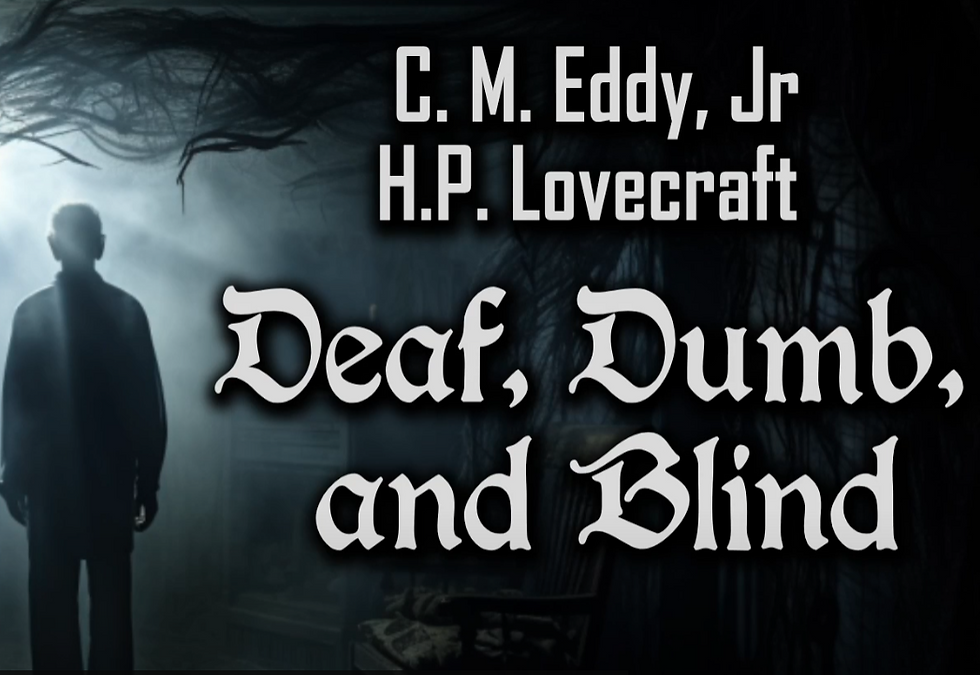Tony's Review of "The Beast in a Cave"
- Tony Travis

- Dec 14, 2024
- 2 min read

The Beast in the Cave is an early glimpse into H.P. Lovecraft’s exploration of fear and the unknown, set deep beneath the Earth’s surface rather than in the cosmic voids for which he would later become famous. Written when Lovecraft was still a teenager, this short story forgoes the grand scale of cosmic horrors in favor of a more intimate terror—a man, alone, lost in a pitch-black cavern, confronted by something that should not be. Though brief, it offers a fascinating window into the author’s developing style and thematic preoccupations.
The story centers on a narrator who becomes separated from a tour group while navigating a sprawling cave system. Deprived of sight and companionship, his mind unravels beneath the weight of absolute darkness. In these tight confines, Lovecraft excels at evoking dread through silence, unseen movements, and the claustrophobic knowledge that escape may be impossible. The cave itself becomes a character—an oppressive, unfeeling environment that strips away the trappings of civilization, leaving only raw instinct and the terror of vulnerability.
Although the protagonist is not deeply developed, he serves as a convincing avatar for the reader’s fears. We learn little about him beyond his initial predicament, but that’s enough. His terror and the dread of unseen threats feel immediate and relatable, and his reactions drive the tension. Lovecraft’s language—though not yet as distinctive as in his mature works—nonetheless establishes the tone with careful detail and atmospheric prose. This early style may feel more straightforward and less grandiose, yet it ensures that the reader is fully immersed in the protagonist’s plight.
Still, the story is not without its limitations. Its brevity allows for only limited character complexity, and the plot is simple, hinging on a final twist. Readers who prefer Lovecraft’s expansive mythologies and intricate cosmic horrors may find The Beast in the Cave less impactful. However, there is a certain rawness to its fear—no cosmic scales or unimaginable gods, just the terror of being lost and stalked in the darkness. It’s a predicament almost anyone could imagine themselves facing.
For those interested in Lovecraft’s evolution as a writer, The Beast in the Cave is a worthwhile read. Its horror is more grounded and personal, prompting us to consider how fragile our sense of safety and identity truly is. While it may not carry the cosmic grandeur of his later work, it subtly reminds us that not all monsters come from distant stars. Sometimes, the horrors lie just beneath our feet—or, perhaps, just behind us in the dark. And given its brief length, it more than justifies the reader’s time.



Comments